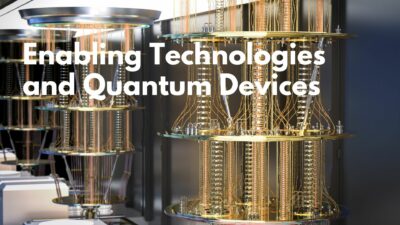Researchers at NIST and JILA have developed the first tunable “noiseless” amplifier, a significant advancement for quantum computing and communications. The new amplifier, which operates between 4 and 8 gigahertz, significantly reduces uncertainty in delicate microwave signal measurements. This achievement exploits a loophole in quantum mechanics rules, allowing the amplifier to add only half the noise that would be expected from measuring both amplitude and phase.
The JILA/NIST amplifier is a 5-millimeter-long niobium cavity lined with 480 magnetic sensors called SQUIDs. It works by selectively amplifying microwaves based on their amplitude rather than phase, using an intense pump tone to cause the microwave power to oscillate at twice the pump frequency. This process enables the amplifier to amplify specific microwave signals while minimizing noise.
The development of this tunable noiseless amplifier has the potential to enable faster, more precise measurements in certain types of quantum computers, which could solve some problems considered intractable today. The research was funded by NIST, the National Science Foundation, and a NIST-CU seed grant, and the results were published in Nature Physics.
Keywords: noiseless, amplifier, entanglement, microwave, quantum interference


